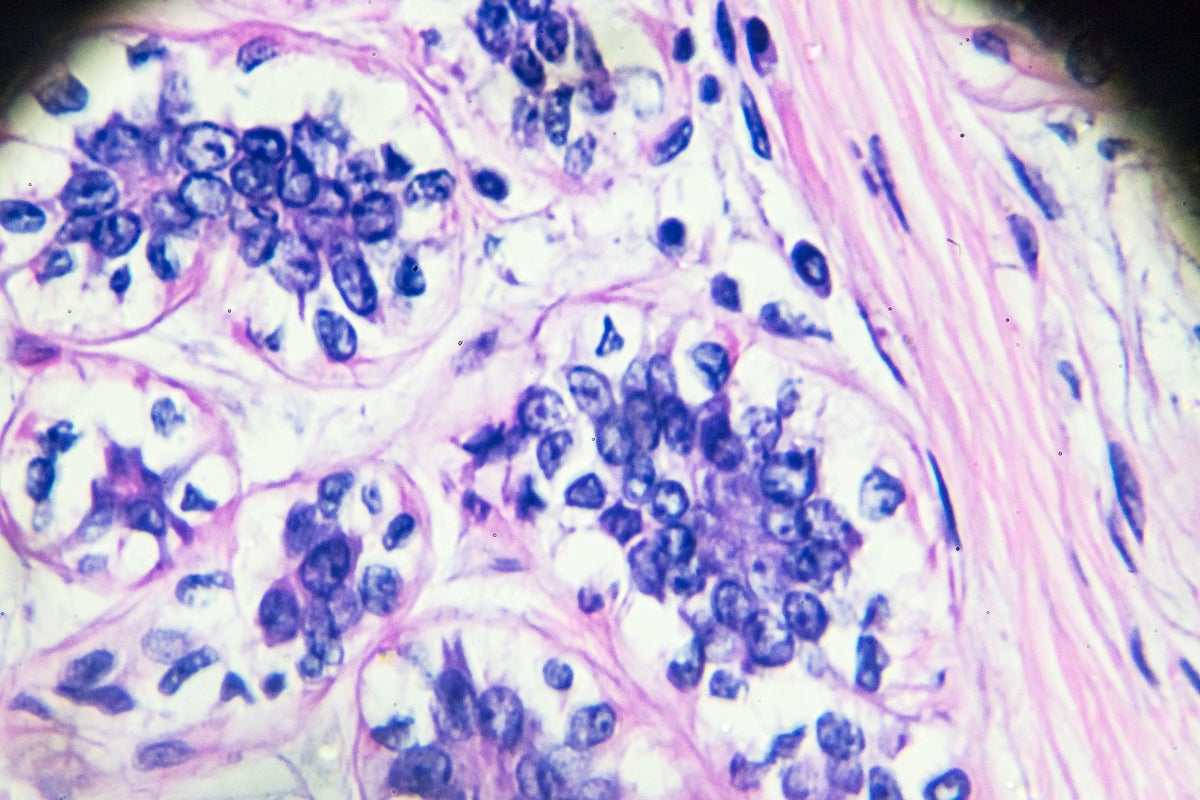A new drug has been shown to halt the growth of certain breast cancer tumours, potentially delaying the need for chemotherapy, according to a new study.
The Serena-6 trial found that camizestrant is effective in stopping cancer cells from using hormones to grow. One professor described the drug as representing “a pivotal moment in breast cancer care”.
Scientists said the trial marked the first global study demonstrating that early detection of cancer resistance through blood tests can significantly benefit patients.
The study focused on patients with hormone-positive, HER2-negative breast cancer, which accounts for approximately 70 per cent of all cases. The results indicated that patients treated with camizestrant experienced a 56 per cent reduction in cancer progression compared to those receiving standard therapies.
Doctors used a blood test to identify changes in the cancer’s DNA, which signal the potential failure of current treatments. Upon detecting these signs, some patients were administered camizestrant, while others continued with their standard treatment.
Those on camizestrant had their cancer stay the same and not get worse for much longer, 16 months on average, compared with about nine months for the others.
The drug was safe for most patients but 1 per cent stopped taking it because of side effects.
More than 3,000 patients from 23 countries took part in the study, which was funded by AstraZeneca and co-led by researchers at The Institute of Cancer Research in London.

Co-principal investigator Professor Nick Turner, group leader in molecular oncology at The Institute of Cancer Research, London, said the drug is “a pivotal moment in breast cancer care”.
Professor Kristian Helin, chief executive of The Institute of Cancer Research said: “The results of the Serena-6 trial represent more than a clinical milestone, they represent a transformational shift in how we approach precision medicine.”
About 55,000 women are diagnosed with breast cancer in the UK every year and 11,500 will die from the disease, The Institute of Cancer Research said.
The Serena-6 trial results were to be presented at the American Society of Clinical Oncology (ASCO) annual meeting in Chicago on Sunday.
Dr Catherine Elliott, director of research at Cancer Research UK, said: “This study is a clear example of how blood tests are starting to transform cancer treatment.
“By tracking tiny traces of tumour DNA in the blood, researchers were able to spot early signs of treatment resistance and switch therapies before cancer had a chance to grow.
“It shows how circulating tumour DNA, or ctDNA, could help doctors make smarter, more timely treatment decisions.
“This approach could become an important part of how we personalise care for people with advanced breast cancer.”






